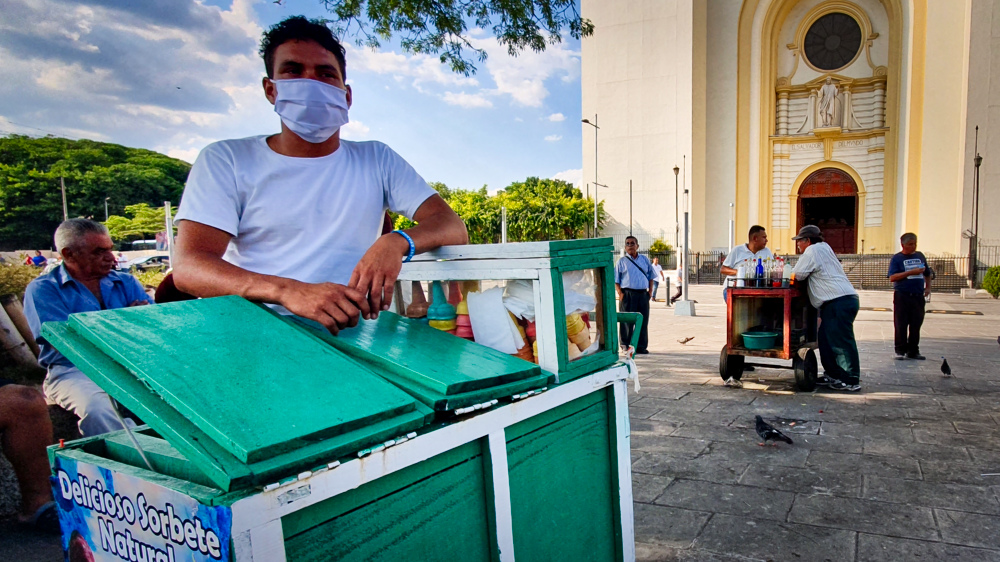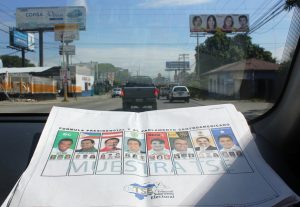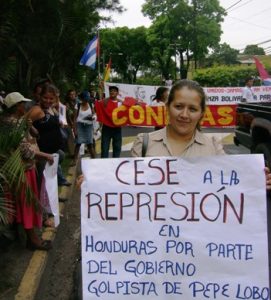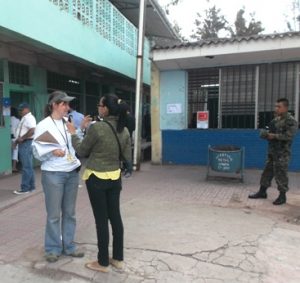Education
The salvadorans who can’t afford to stay at home amid pandemic
The first case of COVID19 reported in Guatemala was a person who was travelling with 5 Salvadorans, as reported by Guatemalan president Alejandro Giammattei. Nevertheless, no cases have been reported by the Salvadoran government as of today.
Besides closing the airport to commercial flights, declaring the first regime of exception after the war, Nayib Bukele has also ordered gyms, bars, schools and universities to close. He also ordered people over 60 and suffering from other diseases to avoid going to work. Some, understandbly, are afraid that this might be used as a reason to fire them later on. Others simply can’t afford to miss even one single day of work. Bryan Avelar from FACTUM has published some stories of informal vendors who remained working at the historic center of San Salvador after the government’s advice:
…
María Vásquez, 34, sells auxiliary cables and cell phones’ chargers. She has three children, ages 13, 16 and 17. Until this Monday, March 16, when the coronavirus pandemic has touched most countries in the world, she says she is not clear what it is. “I’ve heard some things on the radio and what people are saying, but I don’t know what that is,” she says.
What this woman does know is that the money will not be enough to feed her family if she stops working more than two days. She knows that she must sell at least $25 each day, of which she will spend $10 to make three meal times for herself and her three children. With that, she says, she can make eggs, beans, and bananas for breakfast and dinner, and chicken soup at noon. The rest will be invested in other expenses and more merchandise to resell.
If she stops working due to illness or to fulfill the presidential mandate not to go out, María says that she will have to borrow money to survive.
…
Mario is a 23-year-old young man who sells artisanal ice cream at the Historic Center of San Salvador. The cart is not his: he rents it so he can work. Every day, he says, he must sell $40 to pay the rent for the cart and the ice cream and make a profit of $10. From that, he will buy food and other expenses.
Mario, unlike most of the vendors in the center, uses a cloth mask to prevent, according to him, the spread of the coronavirus. However, he does not use alcohol gel nor does he have a way to constantly wash his hands, even though his work demands continuous contact with customers coming from different places.
Mario says he can’t stop going out to work, but that in the worst case (if he gets sick or if the police forces him to) he will. To survive he says he would look for relatives who can help him through the crisis, and then he would try to pay them back. Mario wears a New Ideas bracelet on his left hand.
…
“If they told us to stay at home, but they would give us something … not money, but at least food … I will stay there. But if not, no”. Don José Antonio is 58 years old and sells instant coffee in downtown San Salvador. Nine people live in his house: three adults and six children. The three adults work in the informal sector, he selling coffee, his wife sells cremora and various products, and his sister-in-law sells bags of water on the street. “Don’t think we earn a lot,” says don José.
Don José does not believe in the coronavirus. He says he is not afraid of him. “There have always been pests. We have cancer, AIDS, all that … that has always been there and that is why we have not died. What you have to do is take care of yourself”, he says. Don José does not wear a mask, alcohol gel or wash his hands … nor can he stop going out to sell every day.
If he or the three adults in his family stop going out to work, the children who depend on them would have to stop eating, he says.
…
Read the entire article in Spanish here.




